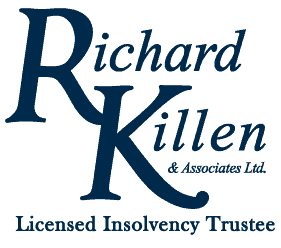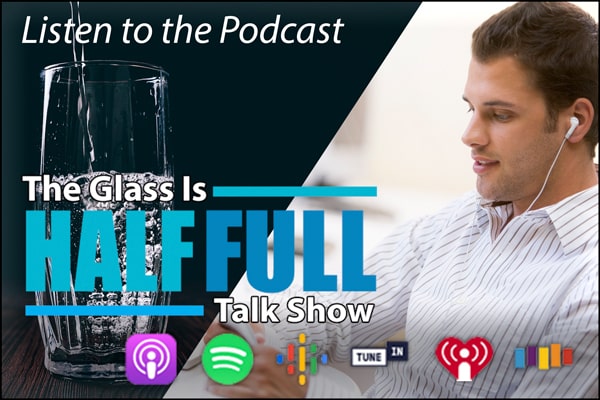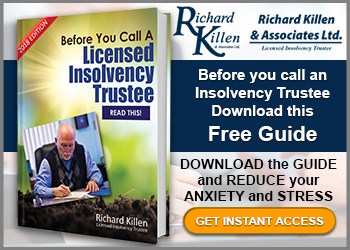More Ways to Cut Spending During the COVID-19 Lockdown
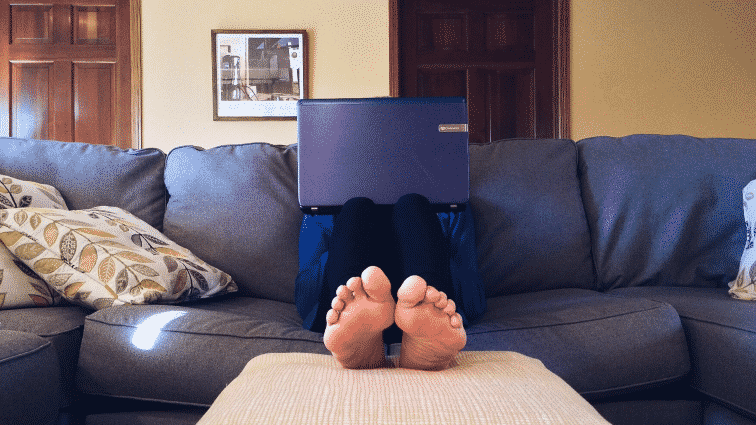
As you go through this COVID-19 emergency, you’ve probably already trimmed your budget and cut spending to the bone in an effort to save money and stretch that much needed dollar. You’ve probably already done some of these:
- Deferred mortgage and credit card debt payments,
- Postponed payments for utility bills,
- Trimmed down your subscriptions and forsaken online shopping.
- Chances are you’re eating out less often and also aren’t spending any money on gas or public transit.
So what else is left to cut?
Here are some more money-saving ideas to slash your budget:
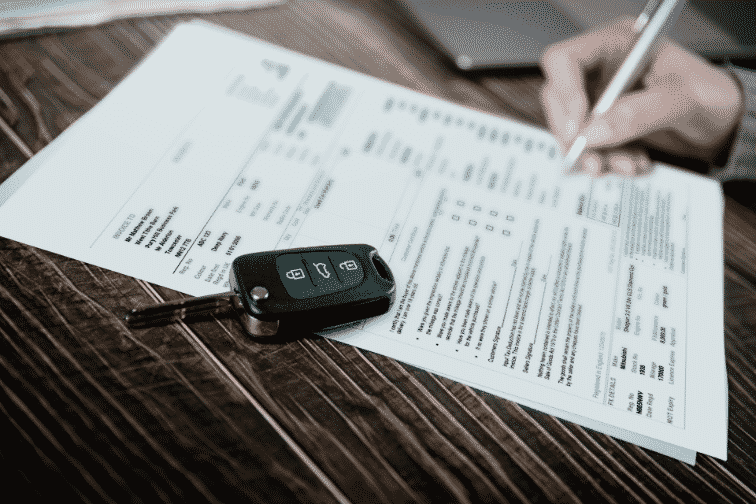
Reduce Car Insurance Costs
If your cars are in your driveway more than usual because of the coronavirus lockdown, you might want to consider ways to save money on your auto insurance policy.
One option to save money is to suspend your auto insurance coverage. This essentially pauses your policy but doesn’t cancel it. It will give you two advantages:
- You won’t have to pay for insurance while your car is out of use
- You can avoid a coverage lapse, which could increase your future rates
Not all companies allow customers to suspend coverage, some might allow it only in certain situations. It’s best to check with your insurer to see if this can be applicable to you.
Another way to save money is to reduce your coverage. Consider cutting back coverage that you aren’t using right now, particularly on most of the driving-related insurance like travel coverage or roadside assistance.
Cutting back coverage is a good alternative instead of cancelling completely:
- You don’t have to pay for unneeded insurance while your car is out of use.
- You can avoid a coverage lapse, which could increase your future rates.
- If you keep a comprehensive insurance policy, your car will be covered for non-driving problems like fire, animal damage, vandalism and theft even with reduced coverage.
To start, check coverage requirements mandated by your city or province. This will determine what coverage you can consider reducing on your auto insurance.
Many insurers are also giving refunds to customers because of premium reductions. If you’re driving less often now on a daily basis or you’re no longer commuting, this lowers your risk exposure and could result in a cheaper policy and a lower premium. Be sure to reach out to your insurance company to inquire about these possible savings.
Make That Switch

If you have the time to shop around, it’s possible to get better deals that can let you save money on household bills. Start with your energy bill. You may be able to save money on your energy bill simply by switching energy providers. Some provinces, such as Alberta, Ontario, British Columbia, Manitoba and Saskatchewan, allow you to switch suppliers. It’s easy, find out how to switch energy suppliers.
LowestRates.ca is a great resource where you can compare rates on auto insurance, home insurance, mortgages, credit cards, loans, and even loans to help you save money on most common household expenses.
Take Advantage of Free Apps & Services
Many paid apps, which usually have a seven-day trial period, are offering coronavirus discounts and free trials for the duration of lockdown. So while we’re stuck at home due to stay-at-home orders, we can download these apps and keep our mind off of coronavirus with free movies, TV, music apps, concerts, internet, fitness sessions, classes, etc. – without breaking our budget.
Check out some of these:
- ca – Watch TV and movies including HBO, Starz, Super Ecran and Letterkenny for free for 30 days. Sign up for the extended offer directly on the Crave apps for Apple and Android devices.
- Down Dog – The highest rated yoga app for practicing yoga at home is offering some of their wellness routines completely free.
- Headspace – This meditation and sleep app is offering a collection of free plans to non-paying customers to help ease the stress and fears caused by COVID-19.
Just make sure to cancel once free trials are over if you don’t want to continue with a service so you won’t be charged any money.

In this time of uncertainty, with so many people losing jobs and we are all worried about our budgets, we need to be proactive and explore ways in which we can save money, not just for now but for the long-term. We may need a complete change of spending habits and living below our means, a new way of living that we can stick with once we get on the other side of the pandemic.
If you need help with your money and debts, take the opportunity to speak with us about your financial situation. We will review your monthly budget and provide you with information and guidance to help you make informed decisions about your finances.
N.B. Whatever you do, make sure you do not deplete your savings or cash in your TFSA or RRSP without talking to us at Richard Killen & Associates first.
You can contact us by telephone at 1-888-545-5365 for a free consultation now. Or you can email us at lawrence@killen.ca or brampton@killen.ca , or simply check out our website at www.rkillen.ca. We are committed to fully serve you in this time of uncertainty.
How to Pay Off Holiday Credit Card Debt Quickly
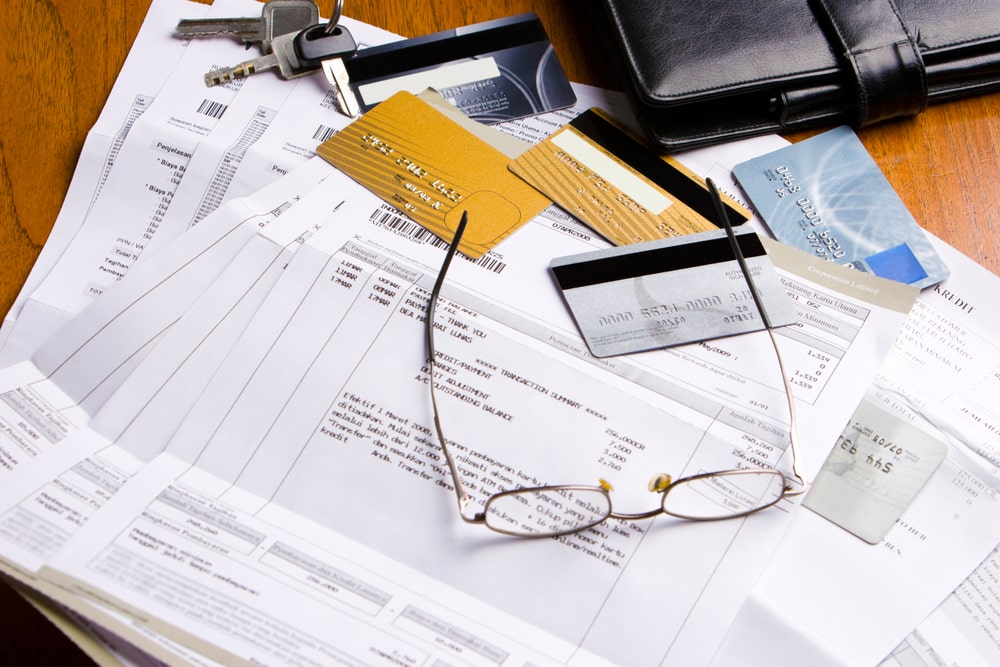 You’re now looking at your bank statements and credit card bills with wide eyes, and the amount of cash you’ve blown this past December is finally starting to sink in. It gets you wondering: What can I do to pay off holiday credit card debt quickly?
You’re now looking at your bank statements and credit card bills with wide eyes, and the amount of cash you’ve blown this past December is finally starting to sink in. It gets you wondering: What can I do to pay off holiday credit card debt quickly?
It can be very scary to go into the New Year with a hefty credit card debt weighing over your shoulder. For too many of us, the cycle of credit card debt starts in the holiday season and it’s the type of debt that’s difficult to recover from. When you only make the minimum payments and the interest charges continue to increase over time, it will take much, much longer to pay it off and you could end up paying triple what you originally paid for the item that you bought. In fact, it’s not uncommon to hear of people who are still paying down holiday credit card debt two or three years later, says Jeffrey F. Schwartz, executive director of Consolidated Credit Counseling Services of Canada.

It’s all too easy to go overboard during the holidays – just dip into your credit card, enter its numbers at the checkout and you’ve got your purchase done. The ease of credit availability is why Canadians, particularly millennials, love to use credit cards during the holidays.
Over a third of Canadian millennials expect to go into debt this holiday season, according to a survey from Credit Karma. Add to this, 62% of Canadian millennials will rack up more than $500 in debt over the holidays with most of them planning to do this with credit cards, and some by using personal loans.
Those surveyed also said that it would likely take them five months or more to pay the debt off. Only 42% of shoppers said they would pay off that debt in three months or less.
“What we’ve seen in Canada over the last year and a little bit is that Canadians are having a tough time meeting their obligations on their credit card…recent research by financial institutions indicates almost half a million Canadians are behind in their credit card payments by 90 days or more,” says Schwartz.
If you’ve acquired a post-holiday debt problem, what you can do now is make a commitment to pay off holiday credit card debt quickly so you can become financially healthy in the new year.
Here’s how you can do it:
Audit your credit card debt
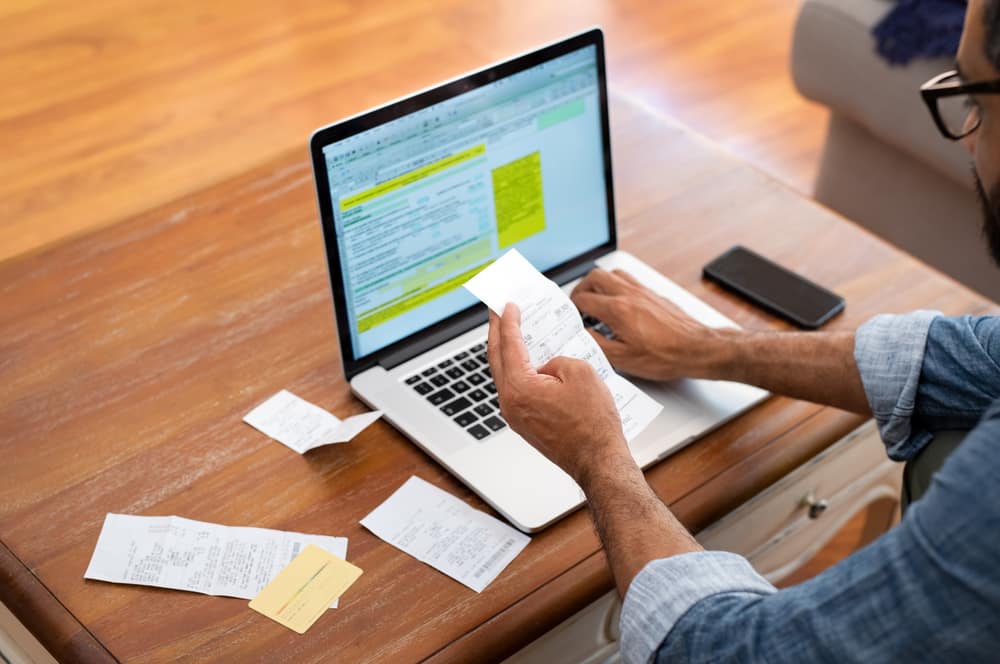
A crucial first step to do is to add up all your expenses including the interest rates to know the exact total debt you now need to pay off. Thinking it’s “around” a certain number is not going to help you understand how much you spent and make an exact plan to pay it off.
Once you’ve taken a look at the numbers, make sure you take the time to identify the root cause of why you’ve accumulated so much credit card debt over the holiday season. Don’t stress over it, don’t wallow in guilt over it, because there’s no point beating yourself for taking on debt. Accept the fact that debt happened, and you’re handling it and looking for resources to help you move forward.
Make a realistic debt payment plan
If you have a small amount of holiday-related debt you will need to make sure to pay it all off in January. If possible knock all your holiday debt out quickly in a month or two, three months at the most. If it will take any longer than this, it’s time to create a realistic plan to eliminate the debt as quickly as possible. Paying down holiday debt in two or three years isn’t worth the unease and sleepless nights. If you’re going to pay just the minimum monthly payment, you’re never going to get out of debt. And, it’s also not realistic to altogether stop spending for the duration of your debt repayment, especially if it’s going to take longer than a month or two.
A realistic debt payment plan takes into account that in real life you will spend for things like the occasional coffee or takeout order, and so you will need to factor this in on what you expect to spend in a normal month including fixed costs for your housing expenses, food, and bills plus your current savings and debt payments.

The difference between paying your holiday credit card debt off in three to six months and in two years can be huge, and so the aim is to zero out the debt as quickly as possible. Make more than the minimum payment wherever possible. If the minimum amount is all you can afford now, then pay that. Don’t stop paying, or you’ll get into deeper debt trouble. Focus on paying off your most expensive debt first, which is the one with the highest interest rate, and then move on to the one with the next highest interest rate and so forth until your debt has gone down. Consider if a balance transfer credit card might be a good move in helping you curtail holiday credit card debt. A debt consolidation loan can also be an option if it can result in lowering your interest rates.
Ask for help
Don’t be ashamed to discuss your financial situation with your partner and other significant people in your life. In fact, get the whole family involved if possible. You’ll be surprised how resilient kids can be and often they will have some really creative ideas on how to cut back on spending habits. This will take some of the stress and pressure of dealing with debt on your own.
Getting professional help from trusted financial experts like an or a licensed insolvency trustee can also be beneficial in helping to put your total debt picture in perspective. You may think your debt problem is unsolvable, but these debt experts can help you find ways to tackle your debt in payments you can afford.
Your best course of action to pay off holiday credit card debt quickly is to relax, take a deep breath, take an objective look at your situation and then figure out what you need to do to fix it. Don’t avoid the problem as it’s going to catch up on you anyway sooner or later. Face the debt head-on, and do everything you can do to get out of debt quickly so you can enjoy the rest of the year free of debt.
Recover from Holiday Overspending with these Quick Fixes

Holiday overspending is a reality for most Canadians. According to a survey by Manulife Bank of Canada, 68% of Canadians said that they will overspend during the holidays despite the fact that they already have a lot of debts and even knowing that they will likely face negative consequences when doing so.
But, why is it so easy for us to overspend especially during the holidays?
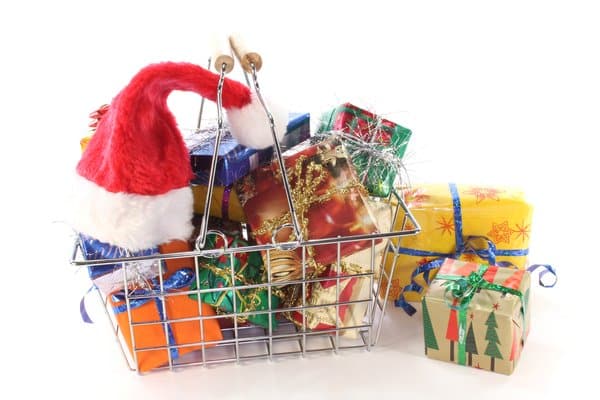
It’s not that we’re reckless and uncaring about the consequences of debt, but more because we feel pressure to buy gifts and impress significant people in our lives. The survey revealed that one in four Canadians feel that social pressure is a contributing factor to why they overspend during the holidays. According to the survey, many of us feel pressure to spend more than we are comfortable to spend on with gifts, travel, social outings or charitable donations during the holiday season.
We want to keep up with the Joneses, or perhaps nowadays it’s more relevant to say we get caught up in social media too much, and want to have the perfect presents to give to our significant others, or buy expensive ornaments to decorate our homes, blow the budget on travel to create the perfect holiday moments, and even overindulge on food shopping to host the most elaborate holiday parties, so we can match the level of holiday shopping, decorating and celebrating that our social media friends do.
This is why financial debt from holiday overspending ranks as the number one cause for increased anxiety and stress than any other time of year. The survey goes on to show that financial stress of the holidays negatively impacts our mental health, creates tension with families and significant others and leads to a loss of productivity at work. Holiday debt sure takes on a heavy toll.
So, is it possible to recover from overspending?
Now that the season is over and the expenses have been made, it’s a bit too late to undo some of the damage. If you tossed your budget aside during the holiday season, you don’t have to spend the New Year regretting it. You can take a few quick and easy steps to recover financially from all that holiday overspending.
No Spending in January
One of the first things you can do is to cut off spending, particularly on the first month of the year when you will need to pay off those mountains of credit card bills. Make the commitment to stick to your monthly budget and not to spend on anything extra other than living expenses. This means no take outs, no clothes shopping, etc. If you’ve got a lot of leftovers from holiday meals, for example, you can eat out of your pantry, fridge, and freezer for the entire month. You can set aside around $20-40 a week to spend on milk, eggs, bread, and other fresh necessities at the grocery store, and this will leave you an extra $300-400 on your budget since you won’t be buying groceries for the month. You can put this to pay off some credit card debt or replenish your savings account. A no-spend month, even if it’s just for one month, is a great step forward. The sacrifice may be hard, but if it means being debt-free for the rest of the year then it’s totally worth it in the long run.
Earn Extra Income

Taking on extra income is one of the best ways to pay down debt plus have some additional savings. A side hustle will act as a cushion and soften the effect of any negative impact a high spending month will have on your budget. There are so many ideas to earn side income. If you have a regular job, the best way to work this out is to ask your employer for overtime opportunities. You can also take on a part-time job – with the holidays just over you can ask your neighbours if you can take down their Christmas lights or other yard ornaments or perhaps you can take on a tutoring job or a small babysitting position. There’s also a good amount of extra income to earn with renting out your home or a room in your home, or even renting out your car.
Earn Money with Unwanted Gifts
You might have received plenty of holiday gifts you don’t want or need, use them to reduce debt you’ve incurred from holiday overspending. If you have the receipts, you can return them and possibly get cash in exchange or probably get store credit which you can use to shop at that store without dipping into your own wallet. You can also sell these stuff on the Internet.
The online marketplace for second-hand or previously owned goods is in high demand. If you have clothing, shoes, accessories, electronics, books, etc that are still in the original packaging (with tags, warranty cards attached) you can easily fetch premium prices for them.

Fashion items sell fast on eBay and Etsy and, more recently, Facebook Marketplace. You can also consign high-end clothes and accessories online in Canadian sites such as Designer Swap, Own The Couture VSP and I Miss You Vintage in Toronto and Turnabout in Vancouver. Use your personal social media channels and post photos of sale items on Instagram Stories, Facebook Groups and WeChat.
Amazon Trade-In, letgo and GoRecell are great online markets to resell electronics.
If you’re nursing a financial hangover, you can feel stressed over it the entire year or you can choose to do something to fix the situation so you can quickly recover from all your holiday overspending. These quick fixes are some easy ways you can do to get back on track to financial growth. Be creative, and challenge yourself to find ways to pay down your debt quickly so you can feel good about going into the New Year free of any debt overload.
Cheap and Free Things to Do in Toronto in November 2019
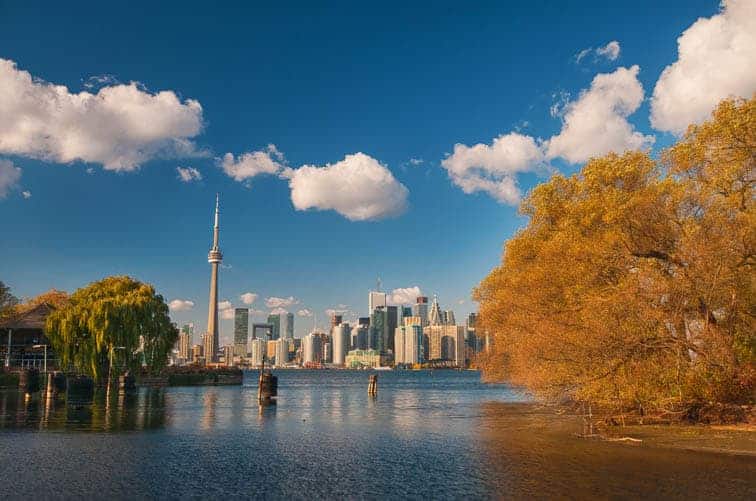
So many cheap and free things to do in Toronto in November 2019, it’s going to be a busy month. But, if you’re low in budget, and are out to save a few bucks for the gift-giving season, don’t worry about missing out. You can still have so much fun without breaking the bank!
Remembrance Day Ceremonies

Let’s not forget to take the time on November 11 to honour all those served, including the many who gave their lives for our country. There are several Remembrance Day ceremonies and events lined up throughout Toronto. You might want to plan to attend one.
You might also want to check out events and programs planned for Remembrance Day at the Toronto Zoo if you’re anywhere nearby.
Or why not go to Remembrance Day concerts with friends or visit museums for amazing exhibits?
Santa Claus Parade

It’s still on November 17, but you can start getting excited about Santa Claus coming to town! This will be a massive parade with all kinds of festive floats and special characters and of course, we will be waiting to see the star of the show, Santa Claus, make his grand appearance! There’s a new route this year that will begin at Parliament Street and travelling south on University Ave before ending at St. Lawrence Market. Be sure to activate your map and GPS so you can trod along without getting lost.
Toronto Christmas Market

You cannot miss out on the magic of the traditional Christmas Market! It’s the most anticipated holiday event of the year. Get ready to see the Distillery District transform into a magical winter wonderland filled with twinkly lights, Christmas decorations and tasty treats and drinks – there’s so much to see and do! You can shop around for homemade crafts, or visit Santa’s house, maybe explore a giant light tunnel and enjoy festive music and live entertainment. Admission is completely free, and you’ve got plenty of time as the market will run from November 15th until December 23rd this year.
Cavalcade of Lights

A free fireworks show will light up the dark night sky and Toronto’s official Christmas tree will once again be lit up this year. There’s also live music by some of Canada’s best artists and a skating party at Nathan Phillips Square – all for free. It will be on November 23, 2019, so save the date on your calendar now!
Chrysanthemum Show at Centennial Park Conservatory

It will run until November 25, 2019, this year, so you still have a bit of time to see creative displays of over 80 varieties of chrysanthemums. It will be a colourful show for sure! It’s open for the whole family and completely free!
Regent Park Film Festival

The organization is well-known for hosting Under the Stars Movies in the Park, year-round film screenings, school programs and workshops at no cost, and of course, the Annual Film Festival, which will be taking place on November 20-23, 2019 this year.
If you’re a fan of films that break stereotypes, such as those with themes about inner-city issues, immigrant experiences and multicultural relationships, or maybe you would just like to show support to local and international independent artists who are struggling to have their work seen, you need to make sure to add this event in your calendar.
One of a Kind Christmas Show and Sale

From November 21 to December 1, 2019, be sure you plan a visit to the Enercare Centre at Exhibition Place for North America’s largest event supporting crafts of all kinds and its craft makers. It will be a cultural and creative experience altogether. You’ll enjoy exploring the huge selection of unique gifts and decorating ideas created and handmade by local artisans – from chocolates to some very pretty clothing and very beautiful unique art pieces for the home. Oh, maybe you’ll want to get started on some serious holiday shopping there.
High Park Toronto in Fall

High Park is free all year round and you can go any time of the year, but you definitely have to see it during the Fall season. It literally transforms into a pretty magical place to enjoy the fall foliage. Imagine how remarkable it is to see some of the maple trees all ablaze in vivid orange and red colours. November is the remaining days of autumn, so it’s particularly beautiful right now. And while you’re there, stop by at the High Park Zoo and say hi to the animals.
From Christmas tree lighting ceremonies, Christmas markets and a chance to meet Santa Clause at the Santa Clause parade, there’s just a ton of free things to do in Toronto in November that will help bring you some early holiday cheer. The best thing is, you can do most of them for free or as cheap as possible so you won’t be blowing all your money and still be able to join in the fun!
4 Money Saving Tips That Can Help You to Save on Groceries

According to Statistics Canada, the average Canadian family of 4 people spends about $214 on food for each person every month. And, this is just for groceries and does not include eating out. Financial experts recommend cutting down this average budget to only $125 per person on food each month. That’s a pretty tight budget! Can you do it?
Try these money saving tips:
Make a Grocery List and Stick to it
The best way to shop is to have a list on what things you need to buy and to make it a point to buy just what’s on the list. This avoids impulse spending, and according to research if you make a habit of sticking to your list you can save up to 23% on your grocery bill. Now, that’s huge savings already!
A grocery list will also help you plan your meals for the week. When you’re planning your weekly menu make a grocery list based on your plan. So every week, you have a meal plan and a list to guide you to buy more nutritious and less pricier food items and you can avoid buying expensive and unhealthy food items on impulse.
Stock Up on food items on sale
The month of February is National Canned Food month in Canada. Did you know that? Well, it is and it’s during this time when you’ll likely find specials on canned produce, so take advantage and stock up on things like canned beans, tomatoes and even canned fruits.
Another themed month linked to saving money on food is on March which has been declared as Nutritious Food Month by the Dietitians of Canada. Frozen foods packed full of vitamins and minerals likely go on sale, so it’s a great time to stockpile on frozen veggies and fruits, and also bread and meat.
Canned and frozen vegetables and fruits can be a huge money saver especially when fresh produce is out of season and still very expensive to buy.
Another great way to look at what’s on sale is to take the time to browse through grocery store flyers, newspaper ads and online to see what items are on sale and which stores you can get them.
Remember to stock up on only things that you normally use. It’s the only way this will work. You won’t save if you go splurging on food items that you don’t need. By stocking up on grocery items that are on sale, you can save about ten percent to twenty percent or even more on your grocery bill for the month.
Go on a meatless diet
Canned and frozen vegetables and fruits are also just as nutritious as fresh produce. So, even if you’re saving big on costs you’re not going to compromise on nutrition. Now, here we have another way to bring down your monthly food shopping bill. Plan out meal recipes wherein you can make use of these canned and frozen vegetables and fruits, for example, you can make large batches of soups, chili, stews, pie fillings, cookie dough batches, or prepare meatless meals like bean burritos with salad, rice and bean casseroles with vegetables, vegetable and cheese omelets with whole grain toast and tofu vegetable stir fry on rice noodles, the recipe list can be endless.
When you serve meals with nutritious, fiber-rich meat-free alternatives, you eat less meat, which is healthy and good for the whole family, and you also buy less meat, which will cut your food costs significantly.
Skip Grocery Shopping
Another food saving hack you can plan your budget on is to skip grocery shopping once every month. When you stockpile on groceries when they are on sale, you can live off of what you stockpiled and then skip grocery shopping at least once every month. If you can’t do this every month, then aim to do it maybe once every three months for a start. It will still save you more or less 25% on your food costs for the year.
Yes, food is expensive, but it doesn’t have to be. There are many ways for Canadian families to save on groceries every month and still eat well and healthy. All it takes is some strategic planning. Use these money saving ideas to start with and then try combining other money saving hacks you can find and in no time you can make it possible to lower your grocery budget and save some serious money that you can put towards other financial goals.
3 Popular Ways You Can Make Extra Money to Pay Off Debt
 Having a traditional 9-5 job is great. It will give you regular pay, that means having a steady income you can rely on to meet all your basic needs. But what about if you have a heavy debt load and need to pay off those debts? Your regular pay won’t be enough. You’ll need to look for ways you can make extra money and meet those extra needs so you can get out of debt quickly.
Having a traditional 9-5 job is great. It will give you regular pay, that means having a steady income you can rely on to meet all your basic needs. But what about if you have a heavy debt load and need to pay off those debts? Your regular pay won’t be enough. You’ll need to look for ways you can make extra money and meet those extra needs so you can get out of debt quickly.
Making extra money is the best way to increase your income. Of course, you will need to cut your spending back. However, that can only get you so far. A lucrative side hustle can bring in much needed cash flow that you can use to put toward paying off your debt.
Here are some great ways to bring in more cash every month which you can all do in your spare time.
Sell items online

Selling stuff online is one of the surest ways you can make extra money. If you’re getting rid of any of your used items, such as household appliances, furniture, used books, collectibles, or pretty much anything you’re not using, you can try selling them on Kijiji, Craigslist and Ebay. All you need to do is list the items for sale and you can start selling right away and earn some extra bucks quickly. If you specialize in some craft or hobby, like knitting, painting and jewelry making, a great place to sell this is on Etsy. If you’ve got a really good product, Amazon would be a great place to sell your stuff. You can even make the leap into entrepreneurship, start small and then slowly but surely build your brand and expand your business, who knows maybe one day you can build your own online store where you can sell all your products. If you don’t have your own product to sell, you may want to look into dropshipping as an option. You can also sell for others as an affiliate and collect a commission for each sale you make.
If you don’t want to create listings and ship items and pay a service fee for using these sites, there are many neat apps nowadays that make selling items online a much quicker and much easier process. There’s Let Go, where you can sell anything from smartphones to shoes. Poshmark is a luxury fashion app where you can sell your high-end handbags, shoes, clothes and accessories. 5Miles is an app that is much more location specific, so you can put up local classified ads and yard sales online and sell your stuff to buyers that are within five miles of your location.
Drive on your spare time

Why not drive for Uber or Lyft on your spare time? It’s another popular way for making money nowadays. Thanks to the boom of the sharing economy more passengers are in need of rides and Uber and Lyft drivers are sought-after by employers. The great thing is, they have this very neat feature where you can turn on and off your availability on their networks by just clicking a button on your phone, so in effect you can set your own schedule, run it as your own side business, and make good money in the process.
Rent your home or a spare room on Airbnb
 If you are willing to rent out a spare room or even your entire home to travelers for a short period of time, AirBnB can be a great resource for you to make extra money. Just create an account and list your space or home for free and you can decide your own schedule, when your home or room is available, and also have full control of prices and requirements for guests. When your listing goes live, guests can start to contact you and you can communicate with them through chat message or any means you’re comfortable with. You get paid 24 hours after a guest checks in. Some people have managed to make this a very lucrative sideline for them that it has become their primary source of income source.
If you are willing to rent out a spare room or even your entire home to travelers for a short period of time, AirBnB can be a great resource for you to make extra money. Just create an account and list your space or home for free and you can decide your own schedule, when your home or room is available, and also have full control of prices and requirements for guests. When your listing goes live, guests can start to contact you and you can communicate with them through chat message or any means you’re comfortable with. You get paid 24 hours after a guest checks in. Some people have managed to make this a very lucrative sideline for them that it has become their primary source of income source.
By earning extra money you can earn a respectable amount of cash that’s going to supplement your income and help you to get out of your debt plan as soon as possible. It’s not hard to find opportunities at all as nowadays there are many ways you can make extra money and earn a few extra bucks to pay off your debt. All you really need to do is make the decision and commit yourself to it.
How to Save Money When You Are Broke

Is it possible to save money when you are broke and a big chunk of your income goes towards paying monthly expenses and dealing with debt? Saving money even while you are getting out of debt and have a low income should not be as difficult as many people think. Of course, you will need to make a few changes to how you currently do things, like following a strict budget and really making an effort to live within your means, but those changes don’t have to be overly radical in that you deprive your family and yourself too much that you can no longer live a decent lifestyle.
Here are some strategies to help you do this the right way:
Make a budget
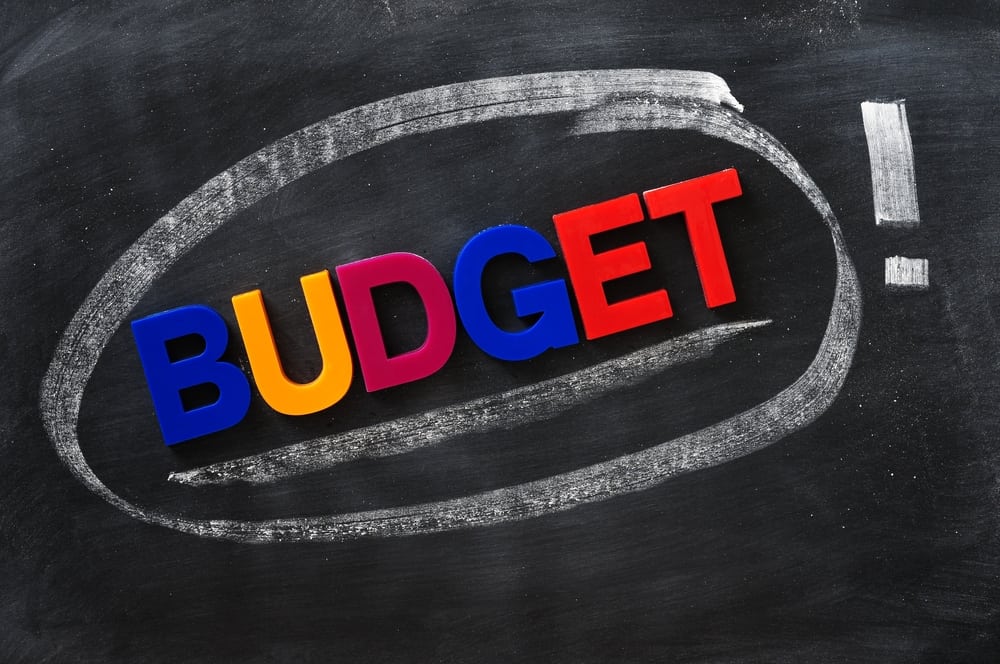
To be able to save money when you are broke, you will definitely need to start paying attention to how you spend every dollar because the little things that you do day-to-day matter a lot! It’s all about taking control of your money and your financial situation and in order to have that power you need to know where each penny goes. When you are aware of this, it will enable you to make the right decisions on how you spend. Creating a monthly budget is the single most effective way to help you keep track of your spending and savings. Budgeting and savings apps will make this task easy for you as they can help you manage your finances on the go direct from your smartphone. No need to log in anywhere else or bring out a pen and paper. Some popular apps you can try out are: Mint.com, Receipts, Debt Minder, Debt Manager, iExpenselt, and many others. Choose one that best suits your budgeting and money management needs, and really be disciplined to make it work for you. Set aside the time each day or week to look at your app and keep an eye on your spending activities, this way you will really see results.
Make adjustments on household expenses
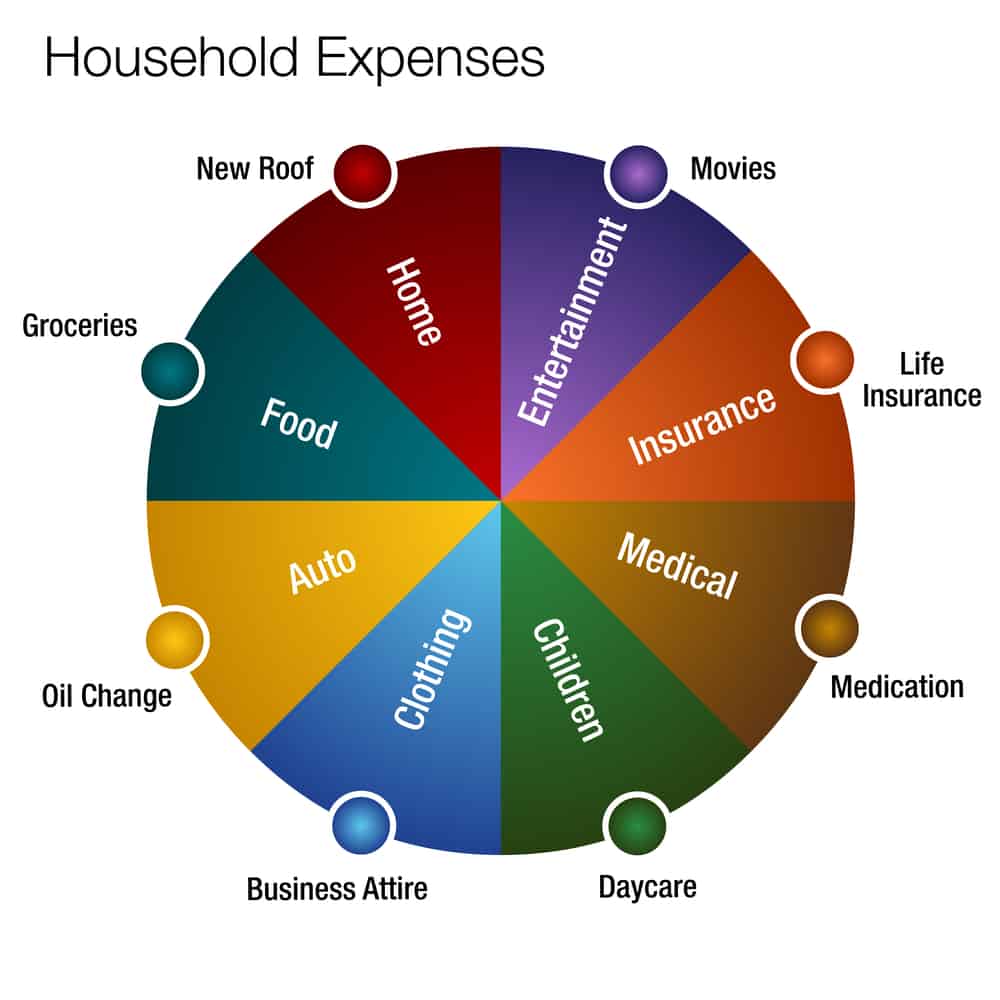
Once you have your budget set up, you can get to work on making some tweaks to your lifestyle. First thing to look at is if you are spending your money on what’s necessary like grocery, water bill, electric bill, gas, etc. Then, make adjustments and cut back on some things.
- Reduce your water usage. Small things like taking shorter showers, installing low-flow faucets and shower-heads, installing a rain barrel and other unwasteful ways will not only bring lots of savings on your water bill but you’re also helping to save the environment.
- Look for ways to lower your energy usage every day. Things like lowering your thermostat, running full loads in the dishwasher and clothes washer, opening drapes and blinds during the day to use up solar energy are some sensible options to conserve energy and save cost.
- Find practical ways to save money on groceries. One of the best ways to cut spending on food is to eat out less. Start making little changes like cooking your own meals, bringing your own lunch, making your own coffee everyday instead of dining out at cafes and restaurants and you will find that you can easily save thousands of dollars on your food budget per year.
- Let go of the cable tv and cancel other subscriptions that are not really needed, like your magazine subscription or your gym membership.
- Save on gas bill and transportation costs. This is also a significant expense for most Canadian households, including your own. The cost of gas is expensive and public transport is not free, so cutting down on this expense will make a huge difference on the budget. Consider carpooling or walking or biking, maybe you can buy cheaper gas in your area – use free apps like GasBuddy, Gas Guru or Waze to help you find cheap gas, or try talking to your HR department if they have any programs available that will subsidize the cost of gas expenses or public transportation.
- Quit your bad habits, like smoking cigarettes and drinking alcohol. A smoking and drinking habit is extremely costly. A pack of cigarettes in Ontario, for example, can be from $18.37 a pack. That means you could be spending as much as $569 per month if you smoke a pack a day. To give you a clearer perspective of how much your bad habits costs you, try using this expense calculator to see how much money you could be spending on something else.
- Cut back on shopping. You will pay a lot less, for example, if you shop at thrift stores. You can find a lot of stuff, clothes, appliances, odd items, that have never been used, worn, or even opened. Another great way to save money on shopping is to avail of cash backs where you can get a little of your money back on purchases you make. When you shop at retailers like Amazon, Target, and Starbucks, for example, they can let you earn points for each dollar you spend and also get exclusive coupons and deals.
- Find ways to pay off your mortgage faster. As a rule of thumb, your housing expense should not take up more than 30% of your income. If this is not the case with your household, then you may need to refinance for a lower mortgage rate. Getting that interest rate down will save you money and enable you to use that money to pay off your mortgage faster so you can get out of debt more quickly.
It’s these little stuff in your daily habits that can add up. However, you have to find ways to cut back, even eliminate some things, especially when you are broke and have debts to pay off. If you watch closely what you spend, you will be surprised how much you can save monthly.
Make sure you have enough savings
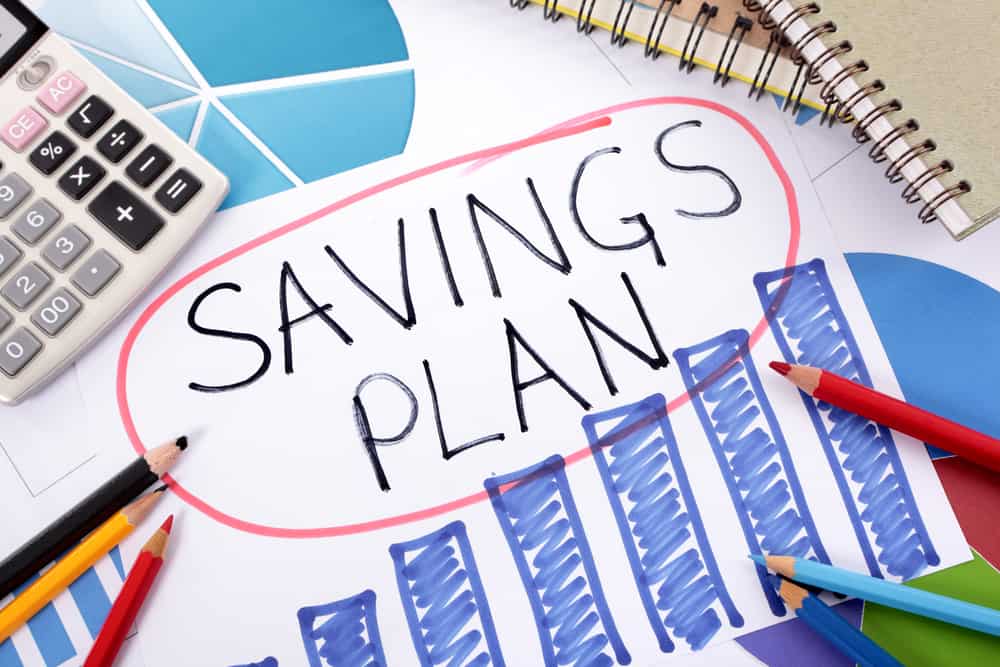
Regardless of your situation, you have to start an emergency savings account. It is very important to have a little bit of money saved up even when you are paying off a lot of debts. You can start small and maintain that amount until you have a bit of wiggle room. The aim is to save and make sure you have some cash to pay for emergency expenses when they arise. Remember, this money is for emergencies only, so keep it someplace where you can easily access it when you need it but not easily within reach so you won’t be able to spend it spontaneously.
I challenge you to take on a couple of these money saving strategies and maybe find other ways that you can be saving money on a daily basis and then really have the commitment to apply them in your daily life and make them work. You will find that little by little, slowly but surely, you are able to get out of debt faster, your savings account balance will be growing, and you’ll see all your financial dreams come true in no time at all.
8 Cheap and Free Things to Do in Toronto in the Winter
Toronto is an exciting place during the winter and with these 8 cheap and free things to do you’ll definitely be in the mood to go out and enjoy all the not-to-be-missed experiences. If you’re tightening your budget after all the holiday spending, don’t worry. There are plenty of free and cheap things to do in Toronto in the winter.
From DJ skate nights to light festivals, there’s a long list of activities and events happening all over the city — we’re sure you’ll find something unique to do to lift your spirits and shake off the winter blues.
Toronto Winter Light Festival

The annual Toronto Light Festival lights up the long gloomy nights of winter from January 28 to March 3, 2019. This free event takes place again this year in the Historic Distillery District with local and international artists putting on a magical display of illuminated artworks and large-scale installations that will surely be a sight to behold.
Icefest
Another winter favourite, Icefest is a cultural event held every year to celebrate the winter season. Now in its 14th year, the event showcases tons of ice-related festivities for the entire family to enjoy — incredible ice sculptures, live ice carving demonstrations, ice exhibitions, photo booths, live DJ’s, scavenger hunts, warm food and hot beverages! All activities take place in the heart of the city at Bloor-Yorkville from February 9th to February 10th and admission is free for all ages. Icefest is also a charitable as it continues to raise funds for the Heart and Stroke Foundation in support of Heart Month in February. Everyone’s sure to have so much fun and its all for a good cause!
Go Ice Skating at the Bentway Skate Trail

Ice skating is a favourite winter activity, and if you’re one of those who loves to ice skate the figure-eight shaped Bentway Skate Trail located under the Gardiner Expressway is definitely a must-visit. The Bentway is open for the winter season until Feb. 18, 2019, and admission is free for all ages. If you don’t have skates, you can take advantage of the free skate rentals on Thursday nights from 5pm to 9pm. If you don’t know how to skate and are dying to learn, then make sure you check out the free drop-in skating lessons from 6pm to 8pm every Thursday until February 14. There’s also an event presented by Kahlúa for adults 19+, Après Skate Saturdays, where you can meet up with other skaters and enjoy complimentary samples with coffee or hot chocolate from 5pm – 9pm. If you don’t want to skate, you can take advantage of the snuggly blankets, warming lounges and fire pits all around the place and just warm up from the cold for a few hours. That’s lots of free stuff at the Bentway, don’t you think?!
Party at Toronto’s DJ Skate Nights
If you’re in the mood for an outdoor party – the kind with really loud music and a crowd of people, then lace up your skates and get into the groove at Natrel Rink, Harbourfront Centre for DJ Skate Nights every Saturday from 8pm to 11pm until February 20. A stellar lineup of local and international DJs play lively beats of disco, hip-hop and techno so you can dance and skate the night away and beat the winter blues. The best thing of all, this nighttime winter party on ice is totally free!
Learn Something at Your Local Toronto Public Library

Reading is a relaxing pastime for many of us and if you’re in the mood to snuggle in a warm, cozy spot with a good book, you can enjoy a few bestsellers at a Toronto Public Library near you. But that’s not all that you can do in your local library! You can borrow the latest books and DVD’s, yes, plus you also have access to a variety of newspapers and magazines from different countries all across the world, so you don’t have to pay for a subscription just to keep up with current events. Then there are free classes you can attend to help you hone some skills, you can learn crafts and hobbies, workshops and livelihood projects and skills to help you look for a job and ace a job interview. There are also seminars where you can get the latest information on web design, web technology, health and employment. They also hold free concerts and exhibitions from time to time so make sure to check back regularly. What’s more, you also get free passes to museums, music, theatre, film and art events all year round with your Toronto Public Library card. So take advantage of these free resources and services!
See Frozen Waterfalls

Waterfall viewing is a winter must do in Toronto because these cascading beauties are transformed into a frozen landscape of intricate ice formations in the winter. There are hundreds of waterfalls scattered within Toronto and the surrounding area and most locations offer free parking and are only a short walk to the viewing platform. Just pack a picnic lunch so you save up on take out. Whether the flow is completely frozen or just a gentle trickle surrounded by snow and ice, there’s just an added dimension of beauty to these wonders that you can’t miss out on.
Tobogganing Fun

Tobogganing is one of the most fun free things to do all winter season. Just grab your toboggan or sled and head to a snowy hill near your neighbourhood and start sliding down the snow-covered slopes. Squeal with delight all you can and just have fun in the snow!
Winterfolk Music Festival 2019
The Winterfolk Music Festival is back for another year taking over Broadview and Danforth from February 22 to 24. You can listen to blues, folk and urban roots music from over 150 artists set on five different venues. There are both free and paid events, but you can get tickets for some of the paid events at just $10 if you buy in advance. A great bargain is the three-day weekend pass which cost only $15 and you can watch all the stages lined up except for the five ticketed shows. So, don’t miss out on enjoying some great music to sing away the winter blues.
There’are tons of amazing free and cheap things to do in Toronto in the winter. So, explore your city every chance you get this season because you surely won’t need to stay in to save with these activities that won’t break the bank!
4 Things About Financial Planning In Toronto That Are Untrue
 People come up with a lot of reasons to avoid financial debt counselling in Toronto and not to plan for their financial future. They’re too young, too old, too broke and so on. But the truth is, financial planning, and the services of financial planner, can help you make a game plan so you can get where you want to go, whether it’s retirement with an adequate income or making a major purchase, such as a house or a car.
People come up with a lot of reasons to avoid financial debt counselling in Toronto and not to plan for their financial future. They’re too young, too old, too broke and so on. But the truth is, financial planning, and the services of financial planner, can help you make a game plan so you can get where you want to go, whether it’s retirement with an adequate income or making a major purchase, such as a house or a car.
So here are four myths about financial planning debunked
Myth 1. Financial planning is only for the rich
Many people believe that only the affluent need the services of a financial planner. Not so. If your savings are small and you’re not really keeping track of where your money is going, all the more reason to get a plan in place. A financial planner can help you set a budget and let you know what tax breaks you can get through financial products such as RRSPs. And while there are financial planners who specialize in wealthy clients, many others provide reasonably priced services to people of modest means.
Myth 2. A financial planner will only give investment advice
Choosing the right investments is only part of the bigger financial picture. A good planner or adviser will take into account varied aspects that include taxes, insurance, retirement planning, creating a budget, estate planning, liquidity requirements and other life goals. And if you have conflicting financial goals, they will help you to understand each one’s pros and cons so you can prioritize.
Myth 3: You’re too young to start planning
Yes, you may not have much money, or even a career, at this stage, and feel that financial planning is something you can do down the endless road that stretches out before you. But starting to plan now will allow you to develop good habits that will serve you well as your career takes off. Small investments made now can take advantage of compound interest rates over many years to grow into something substantial.
Myth 4: All financial planners are created equal.
Not true. Some are well qualified and will work in your best interest; others not so much. So get referrals from friends and family who have used the services of a financial planner before. But also check that the planner has good professional qualifications. For example, do they have the Certified Financial Planner (CFP) designation? If you are going to talk to a planner about using their services, the Financial Planning Standards Council (FPSC) suggests you ask these 10 questions.
How to Lower Your Heating Costs

As the cold weather descends, Canadians are faced with their annual challenge of how to stay warm without breaking the bank – especially as the cost to heat homes rises. To lessen the damage to household budgets caused by high fuel costs, here are five common-sense steps you can take:
1. Turn Down the Heat
By setting your thermostat to 20 degrees, you may be able to reduce your heating bill by 5 to 10%. If it seems chilly, wear a sweater and warm socks. And keep in mind that while you were sweltering in 30-plus degree temperature in the summer, you would have killed for 20 degrees. And reduce your heat another four or five degrees when you are out of your house or gone to bed (saving another 15% in heating costs). Studies show people sleep better in cool rooms.
2. Heat Only What You Use
Shut the doors and close the vents of the rooms you’re not using, so you only heat the rooms you’re living in. On the other hand, do heat the basement, even if you don’t descend to its depths often. A cold basement will make the first floor of your house feel cold.
3. Get Rid of Cold Drafts
Cold drafts are uncomfortable and a reminder that as cold air seeps into your house, hot air is leaking out. Feel for the drafts around window and door frames, and install weather stripping where needed. You might also consider covering some windows with plastic, to keep heat in, and at very least covering the windows with blinds or curtains at night.
4. Control Your Fireplace
Yes, it’s great to have a wood-burning fireplace, providing heat and cheer. But when the fire isn’t burning, the hot air is sucked up the chimney. So close the flue.
5. Ensure That Your Furnace Works Efficiently
You should get your furnace inspected and tuned every one to two years, so that it runs safely and efficiently. In between servicing, making sure that the filter is clean. And if your furnace is old and inefficient, think about replacing it with a new, energy-efficient model, the short-term cost will be recouped after a few cold Canadian winters.
Staying warm is an annual Canadian challenge that we have become very adept at meeting. But, there are other challenges that we must face from time to time such as when we find our debts outrunning our income and our ability to pay them. This too can strain our household budgets and eventually affects large parts of our lives. Well, there are different ways of meeting that challenge and one of the best is to call Richard Killen & Associates and take advantage of the free consultation offered. It is a sure-fire way of staying warm during that kind of “weather” crisis.
